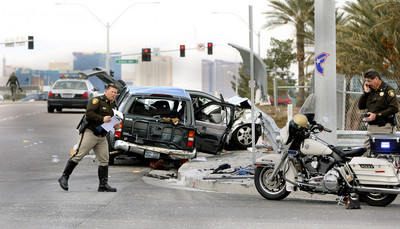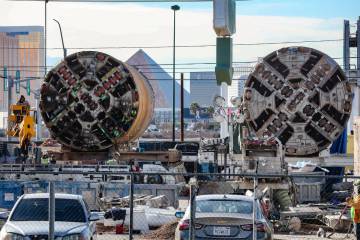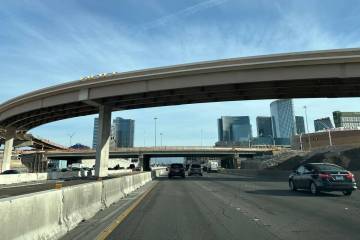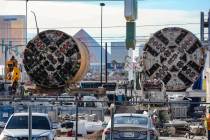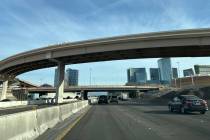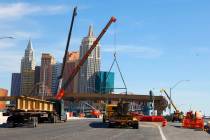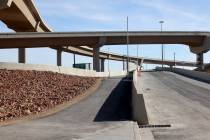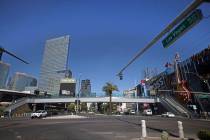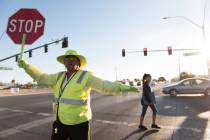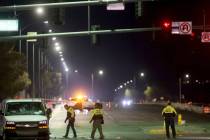Roundabout safety is no accident
Americans are selfish, impatient motorists oblivious to their surroundings and to other drivers.
Although that's a harsh generalization, it might be true from another driver's point of view.
Each of us probably could be characterized as such by another motorist at some point during our driving history. Even the most aware driver has accidently cut someone off or let his mind wander while the vehicle rolls on cruise control.
But maybe our inattentiveness doesn't reflect on us as people. Instead, it could be the influence of strict, controlling driving rules.
I stumbled across this idea while reading an article in The Atlantic by British born behavioral psychologist and Duke University professor John Staddon.
Staddon suggests "that the American system of traffic control, with its many signs and stops, and with its specific rules tailored to every bend in the road, has had the unintended consequence of causing more accidents than it prevents."
The obedience to these signs creates "a form of inattentional blindness," Staddon suggests.
In other words, by worrying about all the signs, including speed limits, stop signs, traffic signals and countless other distractions on our roadways, we are actually diverting our attention from where our eyes should be focused: on the road.
Countless times police investigators told me about drivers who caused a crash, declaring, "I never saw them."
Staddon says the more you look "for signs, for police, and at your speedometer, the less attentive you will be to traffic conditions."
The British system uses fewer traffic control devices, which puts the onus on motorists to be more personally responsible.
Staddon points out that over the past 30 years, the United Kingdom has simplified its traffic control system and seen a 50 percent reduction in traffic fatalities. During the same time in the United States, with a far more complicated set of traffic rules, fatalities have only declined by 20 percent and in recent years have remained stagnant.
Staddon believes we can lower our crash rate by decreasing or even eliminating mandatory stops.
A great alternative to the stop sign is the roundabout, Staddon said.
And there are quite a few American engineers that agree, including some here in Las Vegas.
There are only a few roundabouts here. Off the top of my head I can only think of about half a dozen.
These roundabouts, not even 20 years old, actually represent some of the oldest in the nation, according to the U.S. Department of Transportation.
And yet they have a far superior safety record than the typical four-way intersection. The U.S. Department of Transportation reports that two roundabouts in Summerlin on Town Center Drive, built in 1990, had only four reported crashes through 1995.
I'm sure there have been more since, but I would bet the crashes are less catastrophic than some wrecks at Sahara Avenue and Rainbow Boulevard.
The science indicates that a four-way intersection has 32 points of conflict. A roundabout has only eight points of conflict.
Think about it.
You'll never encounter a left turn crash in a roundabout, nor a head-on collision. Both usually cause severe damage to the vehicles and to people inside them.
Roundabout accidents usually are sideswipes.
There are other pros, too. Roundabouts have fewer long-term operational costs and are more environmentally friendly. There are less vehicle emissions than those resulting from the stop and go caused by traffic signals.
Most importantly, at least according to Staddon's argument, roundabouts force motorists to drive slower and require them to pay attention to the road and other vehicles, and not just a sign.
I suspect we'll probably end up with more roundabouts in the valley and the nation, as the United States starts to catch on to these benefits.
In fact, three more roundabouts are under construction in Henderson, on Serene Avenue, between Eastern Avenue and St. Rose Parkway.
Could this be the beginning of the end of the stop sign and driving as we know it?
Probably not.
We won't want to adjust to that much change in our daily commuting lives.
But maybe we should.
If you have a question, tip or tirade, call the Road Warrior at 702-387-2904, or e-mail him at roadwarrior@reviewjournal.com. Please include your phone number.
The Nevada Department of Transportation announced these updates for the $240 million Interstate 15 north widening project:
The Washington Avenue onramp to Interstate 15 northbound is expected to open today.
D Street will be closed under Interstate 15, from 11 p.m. Wednesday to 6 p.m. Thursday.
The Interstate 15 southbound offramp to Lake Mead Boulevard will close beginning 9 p.m. March 15 through the summer. Use Cheyenne Avenue or Washington Avenue as an alternative.
The Interstate 15 northbound offramp to westbound Lake Mead Boulevard will close at 9 p.m. March 15. Use posted detours.
Lake Mead Boulevard at Interstate 15 will be reduced to one lane in each direction beginning March 15 through November.
The D Street/Washington Avenue onramp to Interstate 15 southbound will be closed beginning 9 p.m. March 16 through December. Use posted detours.
The Interstate 15 southbound offramp to Cheyenne Avenue is expected to reopen March 17.
Lake Mead Boulevard will be closed under Interstate 15 from 9 p.m. March 20 to 5 a.m. March 21.
The Transportation Department announced the following updates to the $34 million Craig Road bridge project over the Union Pacific Railroad tracks:
Eastbound Craig Road will be closed from Losee Road to Interstate 15 and westbound Craig will be reduced to one lane through 5 a.m. Monday. Use Losee to Cheyenne Avenue.
The Interstate 15 southbound offramp to Craig Road will be restricted to westbound movement through 5 a.m. Monday. Use the Lamb Boulevard exit off of I-15 to access eastbound Craig.
The Donovan Connector will be closed through 5 a.m. Monday. Donovan Way will remain open. Use Lamb Boulevard to access Donovan Way.
Lane restrictions can be expected on Rampart Boulevard, from Lake Mead Boulevard to Vegas Drive, for a paving project from 6 a.m. to 5 p.m. today, March 14 and March 15, the Las Vegas Public Works Department announced.
Las Vegas Review-Journal



